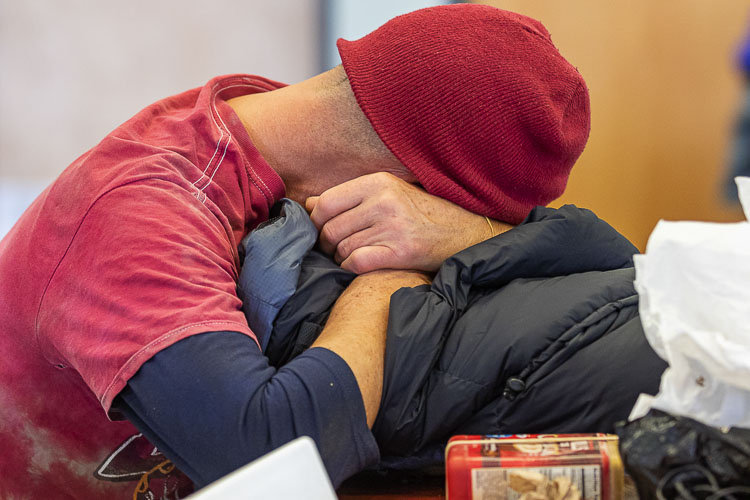Changes to camping ordinance is in response to homelessness crisis
VANCOUVER — A key component of the city of Vancouver’s Homelessness Response Plan will move forward after city council affirmed their support for a supportive campsites pilot project and associated changes to the city’s camping ordinance during a workshop on Monday night.

The pilot project will create supportive campsites for people experiencing homelessness at different locations across the city, serving up to 40 people per site. The campsites will be fenced and supported by a nonprofit on-site operator, sanitation and hygiene services, Share’s Talkin’ Trash program, the city’s Homeless Assistance and Resources Team (HART), and other local service providers. Each will include shower/restroom and laundry trailers, outdoor cooking options and space for offices for management of the site.
It is anticipated that the temporary program, which is slated to run for two to three years, will facilitate up to three managed campsites this year, providing support to approximately a quarter of the known unsheltered population in Vancouver. Additional camps may be added in 2022, if there are staff and resources available to support them.
“The supportive campsites will not solve homelessness in our city,” said the City’s Homeless Response Coordinator Jamie Spinelli. “But they will help address humanitarian needs and the urgent safety, livability, ecological, social justice and public health concerns resulting from this crisis, including an increase in adverse mental, behavioral and physical health symptoms among those living unsheltered.”
There has been an average of 25 deaths per year among those experiencing homelessness locally due to issues such as exposure to weather and the inability to access health and social services, which will be available at the sites. The homelessness crisis has also fostered increased amounts of solid waste, biohazardous materials and illegal dumping at existing, unsanctioned encampments and associated impacts to ecologically sensitive areas.
At the workshop, city council supported the following campsite placement guidelines:
- Disperse supportive campsites equitably throughout the city
- Avoid areas with heightened economic vulnerability
- Ensure Americans with Disabilities Act (ADA) accessibility to and within the campsites
- Give preference to sites within a half-mile of public transit
- Comply with all applicable State Environmental Policy Act (SEPA) requirements
They also directed staff to use the city’s available permitting processes when locating the campsites and indicated support for several proposed changes to the city’s camping ordinance, including:
- Prohibiting unsanctioned camping within 200 feet of specific ecologically sensitive areas like the Columbia River, Vancouver Lake, Burnt Bridge Creek, Burton Channel, Peterson Channel and Fisher’s Creek
- Prohibiting camping within 1,000 feet of any city-approved supportive campsite
- Prohibiting camping on all wastewater, water station and stormwater facility properties
- Adding an exemption process for nighttime workers to legally camp during the day outside of ecologically sensitive areas
City council also indicated support for establishing themed supportive campsites serving specific populations.
City staff will present the proposed changes to the city’s camping ordinance back to city council during a first reading and public hearing in September.
The city recently issued a Request for Proposals to organizations interested in operating the supportive campsites. The contract for a campsite operator will also go to city council for approval once a vendor is selected this fall.
Visit www.beheardvancouver.org/homelessness-response to learn more about the city’s Homelessness Response Plan, ask questions, share ideas and personal stories, or sign up to receive email updates.
Information provided by city of Vancouver.




